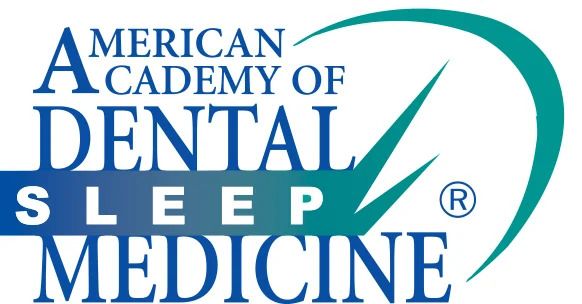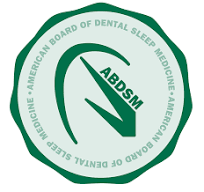What is Sleep Apnea?
Are you having difficulty sleeping, waking your partner up with constant snoring, or suffering from headaches every day? You could have a breathing disorder known as sleep apnea. Sleep apnea is a relaxing or narrowing of the airway that is typically caused by an obstruction of the airway itself or by an underlying medical condition and makes it difficult for your body to get the oxygen it needs during sleep. Sleep apnea is characterized by frequent, repeated pauses in breathing during sleep, after which your brain momentarily wakes you just enough to resume breathing—often without you even noticing. These repeated interruptions break up your sleep cycle, leading to restless nights, daytime fatigue, and potentially serious long-term health issues.

At Restore TMJ & Sleep Therapy, Dr. Katherine S. Phillips and Dr. YC Joseph FischerHahm are both Diplomates of the American Board of Dental Sleep Medicine (ABDSM), a distinction that reflects their advanced training and dedication to the field of dental sleep therapy. With a strong focus on treating sleep disorders like obstructive sleep apnea, they bring a deep understanding of the complex physiological factors that often underlie chronic sleep issues.
For over 15 years, Dr. Phillips and Dr. FischerHahm have helped patients throughout The Woodlands and surrounding communities find lasting relief and better rest. As two of the area’s most trusted experts in dental sleep medicine, they take a comprehensive, root-cause approach to treatment—one that goes beyond masking symptoms to deliver real, restorative results and an improved quality of life.
If you’re struggling to
get a good night’s rest, it’s time to ask if sleep apnea is a possible cause.
Give us a call at 281-296-6797 today to schedule a consultation
Risk Factors, Causes, and Symptoms of Sleep Apnea
In many cases, sleep apnea results from physical changes in the throat and upper airway that develop over time, such as weight gain, aging, or anatomical differences like excess soft tissue. However, the condition can also be tied to a wide variety of medical and physiological factors.
For example:
Chronic respiratory conditions such as asthma or chronic obstructive pulmonary disease (COPD) can make it more difficult to maintain a clear airway during sleep.
Cardiovascular conditions including congestive heart failure and diabetes
are frequently observed in patients with sleep apnea, suggesting a strong link between circulatory health and sleep-disordered breathing.
Hormonal imbalances
may also contribute.
Women going through menopause or those with polycystic ovary syndrome (PCOS) often experience hormonal changes that reduce muscle tone in the throat, increasing the risk of airway collapse during sleep. Low levels of melatonin, estrogen, and progesterone can also interfere with the sleep-wake cycle and reduce the muscle tone needed to maintain a clear airway during sleep.
In addition to medical conditions, there are a number of lifestyle and genetic factors that may increase a person’s risk of developing sleep apnea, including:
Obesity, especially excess fat around the neck and face which can narrow the airway and lead to obstruction. Research shows that about 70% of individuals with obstructive sleep apnea (OSA) are obese, and up to 90% of people who are obese have OSA. Weight gain over time can also worsen the severity of symptoms; studies have shown that a 10% increase in body weight correlates with a 30% increase in sleep apnea risk.
Sleeping position. Sleeping on your back can cause the tongue and soft tissues of the throat to collapse more easily into the airway. Sleeping on your side or stomach is often recommended for individuals at risk of sleep apnea to help keep the airway open.
Genetics.
Sleep apnea often runs in families. Studies suggest that about 40% of a person’s risk for sleep apnea is inherited. Individuals with a first-degree relative who has sleep apnea are significantly more likely to develop the condition themselves.
TMJ disorders.
Issues with the temporomandibular joint (TMJ), such as arthritis or injury, may be linked to sleep apnea. One study found that individuals with a high likelihood of OSA had double the risk of developing TMD compared to those without.
Smoking. Smoking irritates the upper airways, causing inflammation and fluid retention that narrow the airway. It also reduces circulation and impairs oxygen delivery to muscles, further increasing the risk of airway obstruction and nearly doubling the risk of developing sleep apnea.
Nasal congestion. Chronic or acute nasal congestion increases airway resistance and is associated with sleep-disordered breathing. Individuals with persistent nasal congestion are twice as likely to experience symptoms of sleep apnea.
Excessive alcohol consumption. Alcohol acts as a muscle relaxant and depresses the respiratory system, increasing the risk of airway collapse. It can also worsen existing sleep apnea symptoms and interfere with sleep quality overall.
Age. Age-related muscle tone loss in the neck and throat increases the risk of airway obstruction in people 65 and older.
Gender. Men are about four times more likely to develop sleep apnea than women, due in part to anatomical and hormonal differences.
Other contributing factors include
restricted oral or jaw and neck anatomy (such as a narrow throat, neck circumference, or enlarged tonsils) and
neuromuscular diseases like stroke or multiple sclerosis, which can weaken or paralyze the muscles needed for breathing.
Because the underlying causes of sleep apnea can vary widely, proper diagnosis is essential before beginning treatment.
Signs and Symptoms of Sleep Apnea
Sleep apnea is often quite literally a silent condition. While you may not realize you're waking up throughout the night, your body does, and these brief awakenings disrupt your natural sleep cycle, preventing deep, restorative rest, leading to a wide range of physical, mental, and emotional symptoms.
The signs and symptoms of sleep apnea can be just as wide-ranging as the potential causes and risk factors and can show up both during the night and throughout the day. While your sleep partner may notice things like snoring, gasping, or pauses in breathing, other symptoms are more subtle and may be mistaken for unrelated issues.
Nighttime symptoms of sleep apnea may include:
- Loud, frequent snoring
- Gasping or choking during sleep
- Restless sleep or frequent awakenings
- Sore or dry throat in the morning
- Frequent trips to the bathroom overnight
- Insomnia
Daytime indications of sleep apnea might be:
- Persistent fatigue or excessive daytime sleepiness
- Morning headaches or migraines
- Difficulty concentrating or memory issues
- Irritability, mood swings, or signs of depression
- High blood pressure that’s hard to manage
- Unexplained weight gain or worsening cardiovascular health
It’s important to note that
not everyone with sleep apnea snores. While
snoring is a common sign, some individuals with obstructive sleep apnea (OSA) may not snore at all. Conversely, not all snoring is tied to sleep apnea. A proper diagnosis from a sleep physician is the only way to know for sure.
Diagnosing and Treating Sleep Apnea
Sleep apnea is a serious condition, but with the right diagnosis and treatment, it’s also highly manageable. Because the causes and symptoms of sleep apnea can vary widely from one person to the next, it’s essential to seek an accurate diagnosis and a customized treatment plan from an experienced dental sleep specialist like Dr. Katherine S. Phillips at Restore TMJ & Sleep Therapy.
The Importance of an Accurate Diagnosis
Many people with sleep apnea don’t realize they have it. Symptoms like loud snoring, gasping for air, daytime fatigue, and morning headaches are often overlooked or mistaken for other issues. A proper diagnosis—often involving a sleep study—is the first step toward effective care. Depending on your symptoms and health history, a home sleep test or in-lab polysomnography may be recommended to assess the severity and type of sleep apnea you have.
At Restore TMJ & Sleep Therapy, Dr. Phillips uses advanced diagnostic tools, including 3D imaging and airway analysis, to uncover the root causes of your sleep-disordered breathing and develop a treatment plan tailored to your specific needs.
Comprehensive Treatment Options
Sleep apnea treatments typically fall into four main categories. While often effective as standalone solutions, the best approach to treating sleep apnea is using a combination of modalities together to address both the symptoms and the root cause.
The most common treatment methods for sleep apnea are:
Oral Appliance Therapy (OAT). As one of the nation’s leading providers of oral appliances for sleep apnea, Dr. Phillips custom-designs FDA-approved devices that reposition the jaw or tongue to keep your airway open while you sleep. These small, comfortable, and travel-friendly appliances are ideal for patients with mild to moderate obstructive sleep apnea or those who cannot tolerate CPAP machines.
Positive Airway Pressure (PAP) Devices. CPAP and BiPAP machines remain the gold standard for treating moderate to severe OSA. While effective, some patients find them uncomfortable or difficult to use long-term.
Lifestyle modifications. Dr. Phillips helps patients identify lifestyle factors—such as weight gain, smoking, or poor sleep posture—that may be worsening their symptoms. Small changes can lead to big improvements when paired with medical treatment or
medications.
Surgical and advanced therapies. For some patients, surgical options or implantable devices like Inspire may be necessary. Restore TMJ & Sleep Therapy can refer to and collaborate with other medical specialists when these approaches are appropriate.
Trust Your Sleep Apnea Treatment to the Experts at Restore TMJ & Sleep Therapy
Because sleep apnea often overlaps with TMJ disorders, choosing a provider who understands both is critical. As experts in Dental Sleep Medicine, Orofacial Pain, and TMJ disorders, Dr. Phillips and Dr. FischerHahm can accurately identify and effectively treat both TMJ dysfunction and sleep-related breathing disorders simultaneously for more effective and lasting relief. With more than a decade of experience and over 6,000 oral appliances delivered, Dr. Phillips and Dr. FischerHahm offer the expertise and compassionate care needed to help you sleep better and live healthier.
If you or a loved one have been experiencing the signs or symptoms of sleep apnea, don’t wait any longer;
schedule an appointment today and start your journey to better sleep.
-2700x842-1920w.png)









